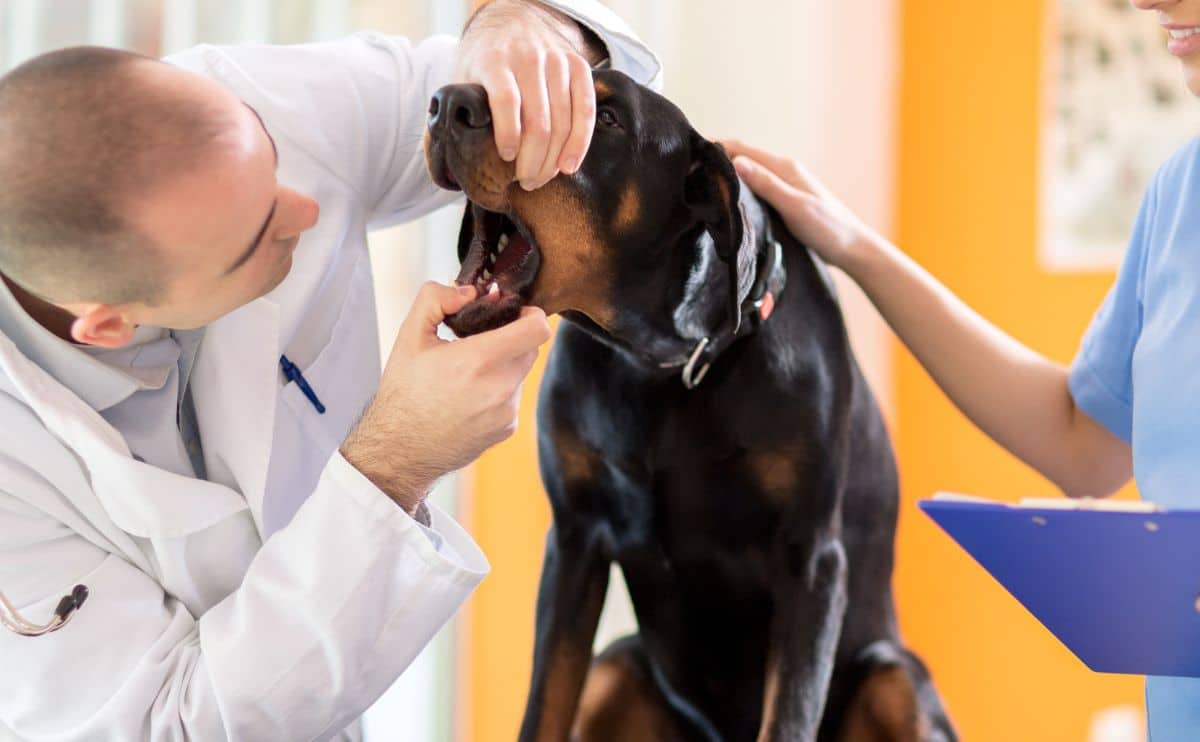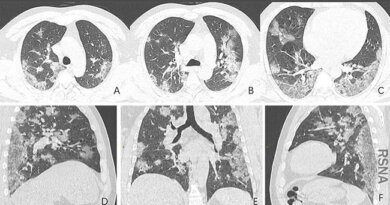Acid Reflux In Dogs: Symptoms, Treatment & More
To keep the lights on, we receive affiliate commissions via some of our links. Our review process.

Acid reflux is the name used to describe the leaking or rising of stomach acid into the food pipe (esophagus) and can get all the way to the mouth or throat. In people, acid reflux is common and often called heartburn, but do dogs get acid reflux? Yes, like humans, your pup’s gut uses acid to break down food in the tummy. And in the same way as people, this acid can leak the wrong way and cause dog heartburn. If it happens regularly, it’s called gastroesophageal reflux disease or ‘GERD.’
Gerd In Dogs
So why does acid reflux happen? When food enters the stomach, it passes through a thick muscular ring (lower esophageal sphincter) which closes behind it. It is supposed to stop the flow of stomach contents from going backward. However, in dogs with GERD, this sphincter is weak, so the acid can easily escape the stomach and into the food pipe. Stomach acid digests food, and the stomach has a special lining to protect it. But if it enters the esophagus, this acid irritates because it doesn’t have the same protection.
What Causes Acid Reflux In Dogs?
Acid reflux can be caused by the following:
- Age – younger dogs can be more likely to get acid reflux if their gut is still developing
- Breed – dogs with flat faces, e.g., bulldogs, get more reflux than those with longer noses
- Having an anesthetic – causes the muscular ring entering the stomach to be more relaxed
- Anatomy – some dogs can have a hiatal hernia where part of the stomach sits in the chest cavity
Symptoms Of Acid Reflux In Dogs
If you’ve ever experienced heartburn, you’ll know it can be uncomfortable. But how do you know if your pup is suffering from acid reflux or something else?
Common symptoms of acid reflux in dogs are:
- Problems swallowing
- Lip licking
- Regurgitation
- Restlessness
- Eating less food
- Weight loss
- Cough
- Smelly breath
- Dribbling
- Brings up bile
- Bark sounds different from usual
How To Tell The Difference Between Regurgitation And Vomiting
When your pooch regurgitates, it will often happen very suddenly without any signs before it. If he brings up food, it’s often undigested and in a sausage shape. When dogs vomit, they will have tummy contractions, so you know something’s about to happen.
Diagnosing Acid Reflux In Dogs
It can be complicated to diagnose acid reflux in dogs as their symptoms can occur with other conditions also – see what else could it be.
First, you need to get your pup examined by the veterinarian and describe the problem to them. They may want to run a blood test and urine sample to look for other causes of your dog’s symptoms. X-rays and ultrasounds can give information about your pooches’ gut and show where the problem might be.
Be aware that sometimes these tests do not always find the issue, but they will help rule out a lot. If your clinic can, they may want to pass a camera (endoscope) down the food pipe and into your dog’s stomach. Signs of acid reflux can be seen as inflammation or even ulcers.
Other Possible Diagnosis
If your pup has any of the above symptoms, they might have acid reflux or possibly:
- A growth (or tumor)
- Have swallowed something that has caused irritation or burns
- An obstruction or foreign body
- Megaesophagus (a condition where the esophagus muscles are weak and food isn’t pushed down to the stomach properly)
- Hiatal hernia (as previously described)
Treatment
The best place to get information about treating or managing acid reflux is from your veterinarian. So be sure to consult with them before trying any home remedies.
Once your canine companion gets their diagnosis, you’ll likely need to manage their condition for the rest of their life – but it depends on what’s causing it.
Treatments for dog heartburn are based on reducing the amount of acid produced in your puppy’s tummy and protecting the gut from the irritating acid so as not to cause inflammation.
To Reduce Stomach Acid Irritation:
- Low-fat diet – foods with less fat will not need as much acid to digest them
- Smaller meals – eating smaller meals more frequently will prevent lots of acid building up
- Antacids – these are medications that lower acid production in the stomach, e.g., omeprazole
- Pro-kinetics – helps food pass through the gut efficiently and makes the muscle at the entrance to the stomach stronger
To Protect The Gut From Acid:
- Neutralizing medications – your vet can prescribe liquid medication that lines your pup’s gut to protect it from irritation and neutralize the stomach acid.
As well as managing acid reflux when it happens, your veterinarian will also advise treating any primary causes of it – like surgery to fix a hernia.
What To Feed A Dog With Acid Reflux
If your pooch has acid reflux, you’ll want to know how you can help at home. Of course, feeding them a healthy diet is always a good place to start. But what exactly does a dog with acid reflux need?
Pumpkin For Acid Reflux In Dogs
Pumpkin is an excellent addition to your dog’s diet to help with digestive problems. Not only is it low in fat, but it helps to neutralize the acid in your puppy’s stomach. In addition, pumpkin’s high fiber content means it’s easy to digest and encourages effective stomach emptying to keep your canine’s gut moving. Fiber also absorbs excess fluid in your dog’s tummy.
Best Dog Food For Acid Reflux
Dogs with reflux do best on diets that are low in fat. This reduces the amount of acid the stomach needs to digest a meal. You can buy tailor-made, prescription diets which give your pup everything they need while helping to manage their condition. Ask your vet clinic for help choosing the best one for your dog.
Honey For Dog With Acid Reflux
Although honey won’t cure your pooches’ indigestion, it’s thought to help with the symptoms associated with reflux. If your pup has very bad acid reflux, they may get a sore throat. Honey can help soothe any inflammation. It also has antioxidant properties, which could help heal damage in your dog’s food pipe.
Do Probiotics Help With Acid Reflux In Dogs
Probiotics greatly benefit your dog’s overall health and are usually added to food. They improve digestion and keep the gut happy and healthy. In addition, they will help keep levels of stomach acid under control to manage reflux. Probiotics also improve the immune system, so your pup can get better from their symptoms sooner. Learn more in our probiotics for dogs article, including some recommended products.
How To Keep A Happy Healthy Dog
Acid reflux is an uncomfortable condition for your dog to live with. First, consult your veterinarian to get the proper diagnosis and determine if there are any underlying causes of your dog’s acid reflux. Some pups might be lucky, only have episodes now and again, and may even get better without treatment. Other dogs will need management for their whole lives. Feeding your pooch a low-fat diet and small frequent meals will help keep their symptoms at bay. If that doesn’t help, medication may be prescribed to make them more comfortable. Acid reflux is manageable, so be sure to follow any advice. Your faithful friend can easily live a happy and healthy life despite their diagnosis.
Tagged With: Digestion, Gastrointestinal




